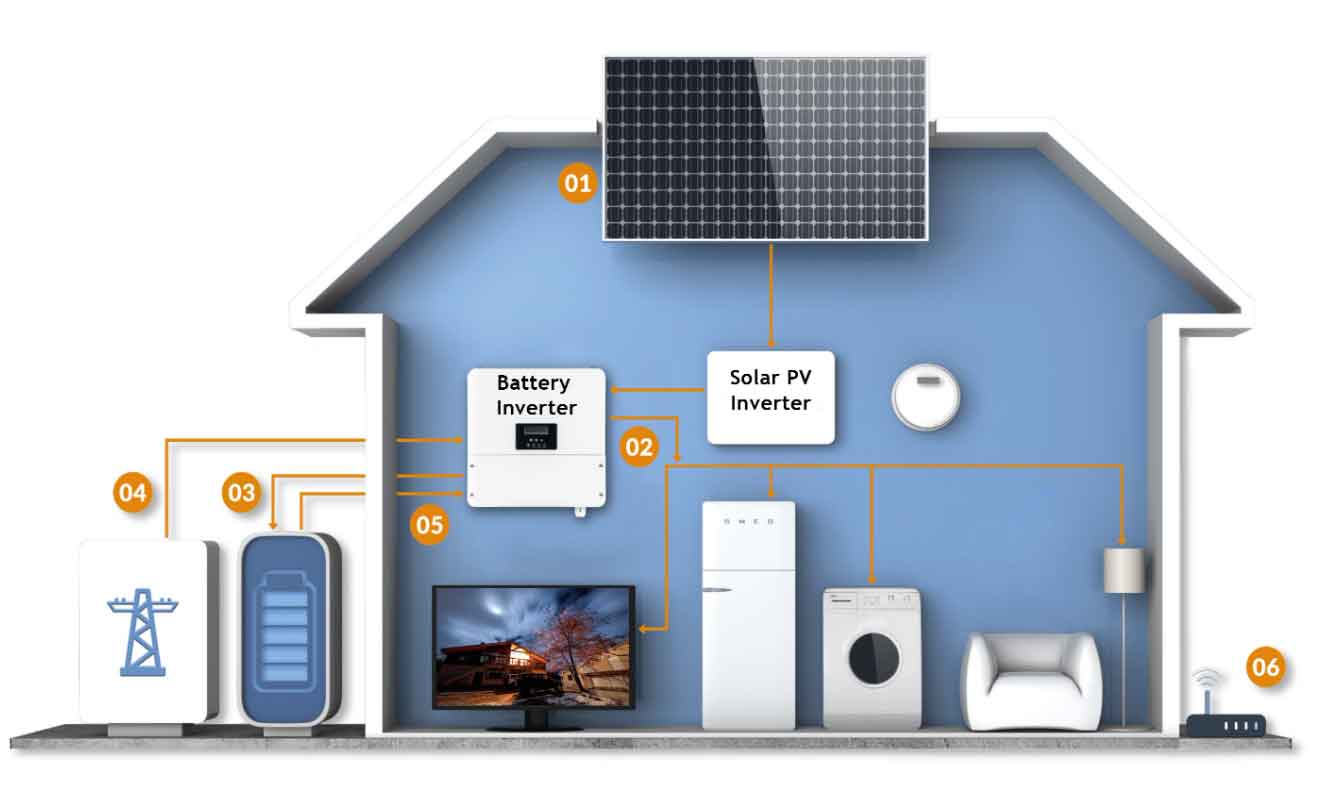
As the world shifts towards sustainable energy solutions, solar power has become a cornerstone in the quest for cleaner, more efficient energy sources. One of the most significant advancements in this field is the integration of solar battery storage, which is transforming how energy is consumed and managed. This article explores the concept of grid independence and the revolutionary impact of solar battery storage on energy consumption.
Understanding Grid Independence
Grid independence refers to the ability of a household or business to generate and store enough energy to meet its needs without relying on the traditional power grid. This independence is achieved through a combination of solar panels and battery storage systems, which allow users to capture and store solar energy during the day for use during the night or during periods of low sunlight.
The Role of Solar Battery Storage
Solar battery storage systems store excess energy generated by solar panels, making it available for later use. This capability not only provides a reliable backup during power outages but also helps in managing energy costs and reducing dependence on the grid. The integration of these systems offers several benefits:
- Energy Security: Solar battery storage ensures a continuous power supply, even during grid failures or natural disasters.
- Cost Savings: By storing excess energy, users can reduce their reliance on peak-time grid electricity, which is often more expensive.
- Environmental Impact: Utilizing stored solar energy reduces the need for fossil fuel-based power, lowering carbon emissions.
- Flexibility: Users can manage their energy consumption more effectively, using stored power when it’s most needed.
Revolutionizing Energy Consumption
The adoption of solar battery storage is revolutionizing energy consumption in various ways:
- Increased Efficiency: Solar batteries enhance the efficiency of solar power systems by maximizing the use of generated energy.
- Load Shifting: Users can shift their energy use to off-peak times, taking advantage of lower electricity rates and reducing strain on the grid.
- Resilience: Solar battery storage provides resilience against power outages and grid instability, ensuring a reliable power supply.
- Decentralization: With more households and businesses generating and storing their own power, the energy grid becomes less centralized, reducing the risk of widespread outages.
Case Study: Solar Battery Storage Benefits
To illustrate the impact of solar battery storage, consider the following comparison between a typical household with and without a solar battery system:
| Feature | Without Solar Battery Storage | With Solar Battery Storage |
|---|---|---|
| Grid Dependence | High | Low |
| Energy Security | Low | High |
| Monthly Electricity Bill | Higher | Lower |
| Carbon Footprint | Higher | Lower |
| Resilience Against Outages | Low | High |
Conclusion
Solar battery storage is a game-changer in the quest for grid independence and sustainable energy consumption. By providing a reliable, cost-effective, and environmentally friendly solution, it empowers individuals and businesses to take control of their energy needs. As technology advances and adoption increases, the future of energy consumption looks brighter and more sustainable than ever.
Harnessing the power of solar energy and innovative battery storage systems, we are moving closer to a world where energy independence is not just a possibility, but a reality for all.
